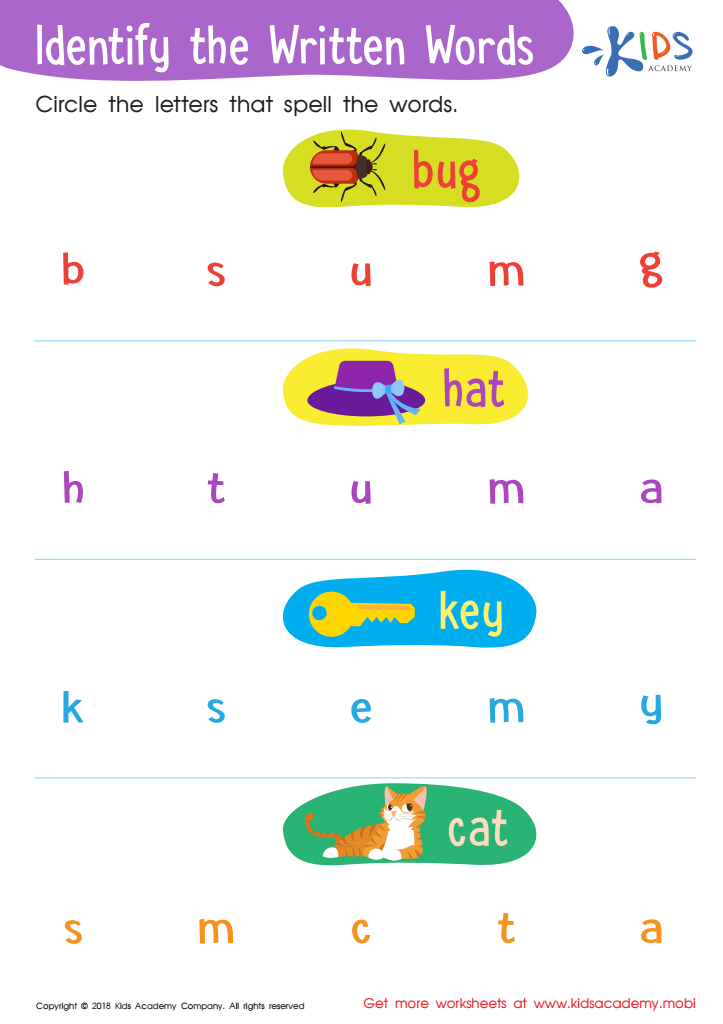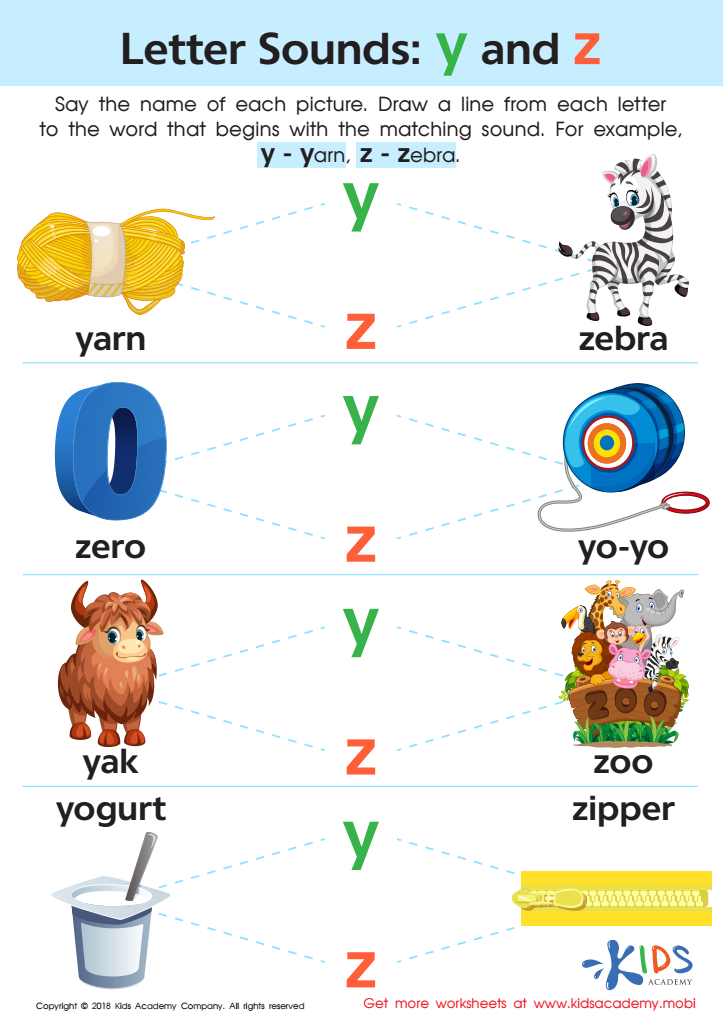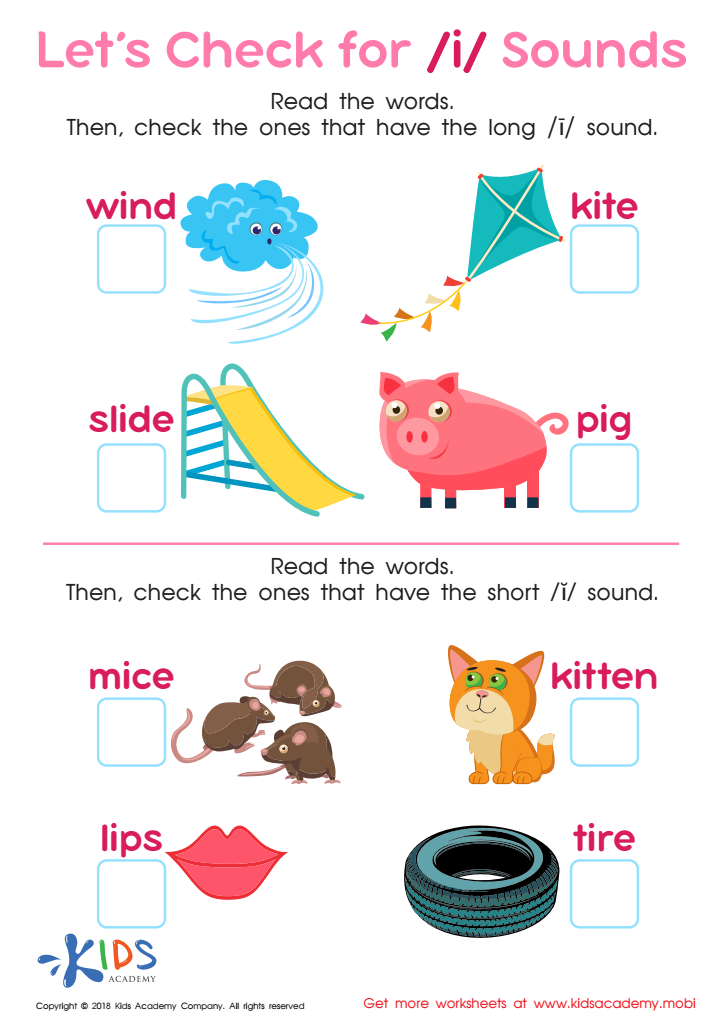Reading skills improvement Normal Letter Sounds Worksheets for Ages 5-6
3 filtered results
-
From - To
Enhance your child's literacy journey with our engaging Normal Letter Sounds Worksheets designed specifically for ages 5-6. These interactive resources help young learners master essential reading skills by focusing on letter recognition and sound associations. Each worksheet encourages phonetic awareness and boosts confidence in reading. With fun activities, colorful designs, and clear instructions, children are motivated to practice their skills while enjoying learning. Our collection is tailored to accommodate different learning styles, making it easy for parents and educators alike to support each child's unique progress. Dive into our worksheets and watch your child's reading skills flourish today!


Identify the Written Words Worksheet


Letter Y and Z Sounds Worksheet


Let's Check for «i» Sounds Worksheet
Reading skills development at ages 5-6 is crucial, as it lays the foundation for a child's future academic success. At this early stage, children are typically learning normal letter sounds, which are essential building blocks for reading. Mastering these sounds helps children decode words, leading to improved reading fluency and comprehension.
Parents and teachers should care about this improvement because strong reading skills enhance overall communication. Children with solid reading abilities are often more confident in participating in class discussions and social interactions. Furthermore, reading encourages imagination, creativity, and critical thinking, fostering a love for learning early on.
Additionally, early reading skills can significantly impact a child’s long-term educational journey. Struggling with reading in the early years can lead to increased frustration and lower self-esteem, creating a potential gap in learning. Thus, significant early intervention can prevent future difficulties and support continuous educational growth.
Empowering young learners to become proficient readers not only prepares them for successful academic undertakings but also encourages lifelong learning, paving the way for personal and professional success later in life. Investing in the development of reading skills at this formative age is vital, making it a priority for both parents and educators.
 Assign to My Students
Assign to My Students














